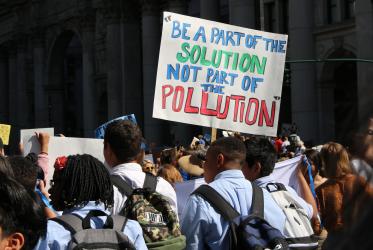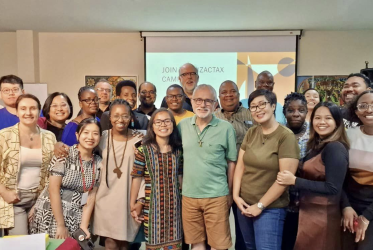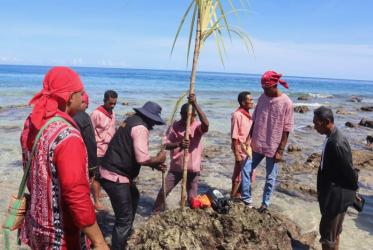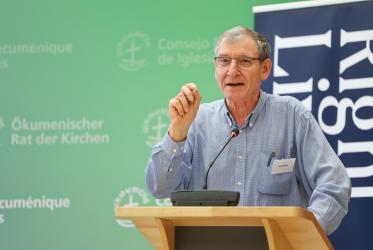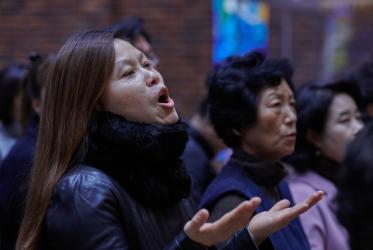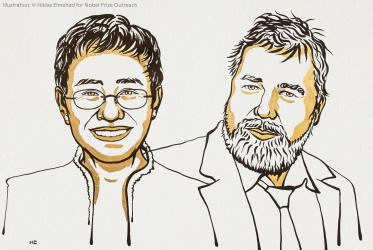Displaying 1 - 20 of 198
09 February 2024
GEM School explores how to make new economic world order a reality
08 September 2023
Climate crisis fuels existing water injustice
27 October 2021
WCC congratulates 2021 Nobel Peace Prize laureates
14 October 2021
WCC offers prayer during Japanese peace conference
11 March 2021

